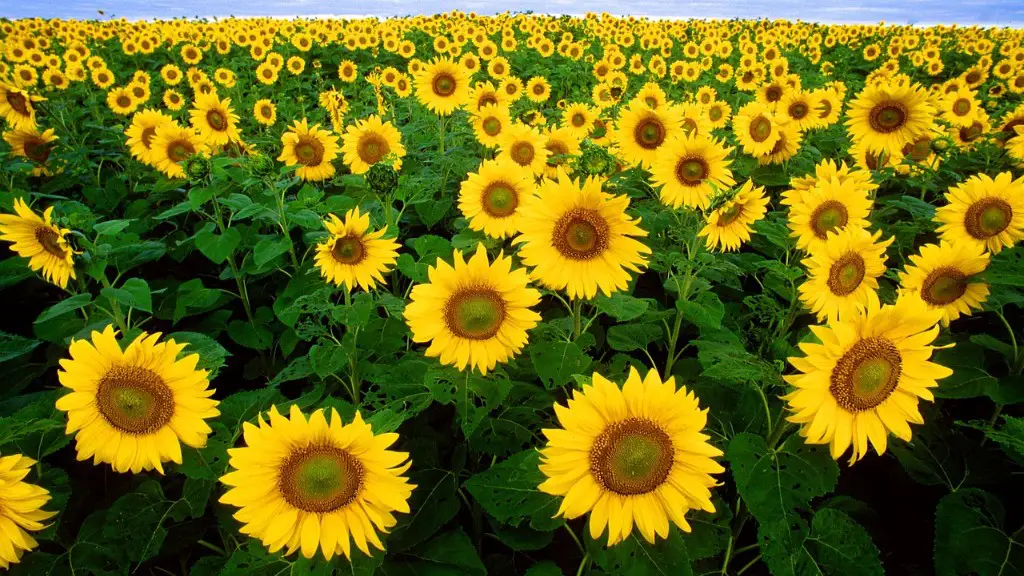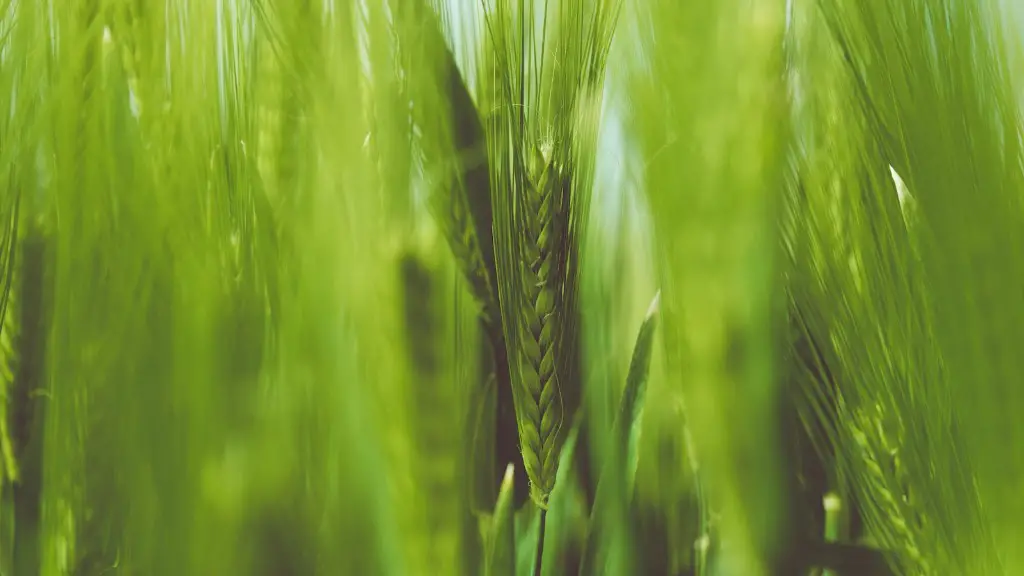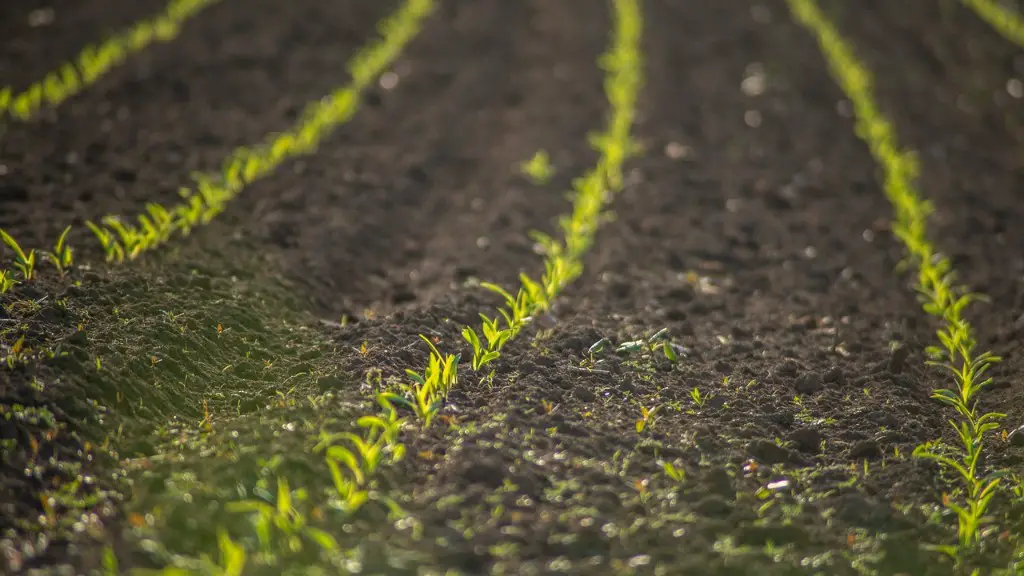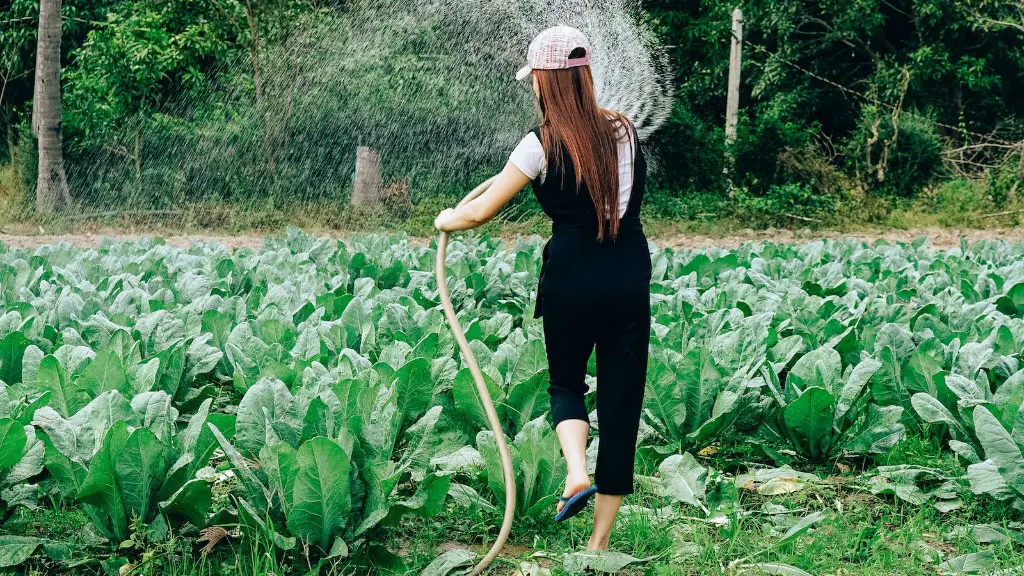Agriculture is the art and science of cultivating land and raising crops, livestock, and other beneficial organisms, in order to create products that benefit society. It involves the management of soil, water, nutrients, and energy inputs to produce food, fiber, animal feed, and other products. Agriculture has been practiced by humans since the dawn of civilization and continues to play a major role in how societies are structured today.
Agriculture is a dynamic, evolving system of production, processing, and delivery of food and other products. It involves many different elements, including production of crops and animals, processing of food products, marketing, distribution, and finance. Agriculture is a complex science that requires knowledge and skill in numerous scientific disciplines like animal science, agronomy, economics, engineering, soil science, and biology.
Agricultural production is the growing and tending of crops and raising of animals for food and other uses. Production is driven by the selection and maintenance of species and varieties, the improvement of crops and animals through breeding, the application of inputs such as fertilizer and pesticides, and the management of weeds, pests, and diseases. Production also involves practices such as irrigation, tillage, and rotation of crops.
Agricultural processing is the transformation of raw agricultural products into finished products through processes such as storage, processing, packaging, and transport. Processing can involve a range of activities, from simple baking and cooling to complex activities such as blending, fermenting, and extrusion. Processing can also include numerous other activities, such as drying and preserving, fortifying and enriching, and canning and freezing.
Agricultural marketing is the set of activities that allow farmers to interact with their customers and vice versa. Marketing includes activities such as pricing, promotion, packaging, and product differentiation. It requires farmers to understand consumer needs and interests and to have the skills to identify customer segments and target them accordingly.
Agricultural finance is the management of money and other resources related to agriculture. It involves activities such as budgeting, record-keeping, risk management, borrowing, and insurance. Financial management is a critical component of successful agriculture, as poor decisions in finance can lead to reduced agricultural production and ultimately, reduced profits.
Agricultural distribution is the arrangement of inputs and outputs of agricultural production. Distribution involves the transportation and selling of agricultural products from producer to consumer, both domestic and abroad. Distribution also includes the marketing and positioning of products in the marketplace, as well as the logistics of transportation, storage, and delivery.
Animal Agriculture
Animal agriculture is the practice of raising animals for consumption, including poultry, cattle, and fish. Livestock production is an important component of animal agriculture, as it provides food for consumption and ingredients for many other products. Furthermore, animal agriculture is becoming increasingly important for sustainable intensification and diversification of the agricultural sector. Animal production is, however, associated with various environmental impacts and animal welfare issues, which can be countered by applying various measures such as good management practices, selecting suitable genetics, and improving housing, nutrition, and health care.
Agricultural Technology
Agricultural technology is the application of technology in the field of agriculture, which deals with improving farming operations through the use of technological solutions. This includes the use of computers, sensors, robotics, and other technological innovations to increase crop yields, automate work processes, and generally improve agricultural efficiency. In addition, use of technologies such as precision farming, biotechnology, and genetic engineering are allowing for breeding improvement and the manipulation of genetic material for advantageous traits such as drought tolerance and pest resistance.
Sustainable Agriculture
Sustainable agriculture is an environmental approach to agriculture that emphasizes the use of management practices that conserve natural resources, protect the environment, and promote economic viability. Sustainable agriculture includes practices such as no-till farming, cover cropping, use of manure and compost as fertilizer, integrated pest management, and use of renewable energy sources such as solar and wind energy. By incorporating these practices, farmers can produce a sustainable supply of food while reducing their contribution to global warming, soil erosion, and water pollution.
Organic Agriculture
Organic agriculture is an agricultural system that uses natural methods of production, avoiding the use of synthetic chemicals, genetically modified organisms, and other artificial inputs. Organic farming restricts the use of genetically modified seeds, synthetic fertilizers and pesticides, food additives, and processing aids, and instead relies on organic fertilizers and other natural inputs. Organic farming also emphasizes other principles such as the conservation of natural resources, enhancing biodiversity, providing good animal welfare, and protecting the environment.
Agricultural Economics
Agricultural economics is an important field of study, as it helps to understand the various factors that affect the production, distribution, and consumption of agricultural goods and services. Agricultural economics involves the study of many topics, including policies, markets, and global trade, and how they affect the supply and demand of agricultural products. Agricultural economics also studies the economics of resource conservation, the pricing of agricultural products, and the economic impact of farm-level decision-making.
Agricultural Extension
Agricultural extension is the process of introducing new technologies, practices, and knowledge to farmers for improved agricultural production, resource conservation, and environmental sustainability. Extension programs provide farmers with relevant and timely information, including new technologies and production practices, better management techniques, pest and disease control, post-harvest processing, and market access to allow them to enhance their production, increase efficiencies, and reduce environmental risks.



